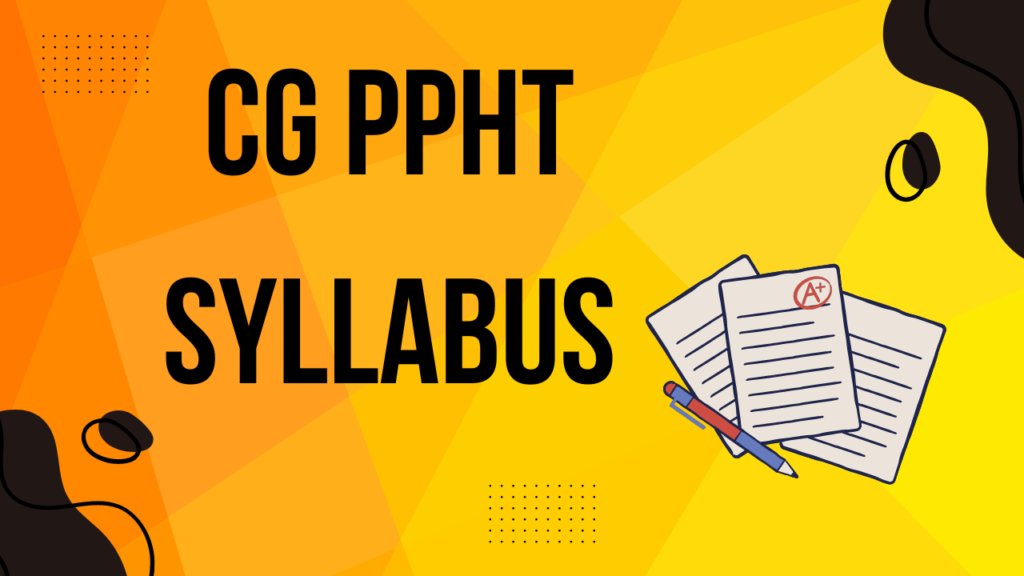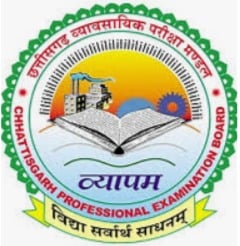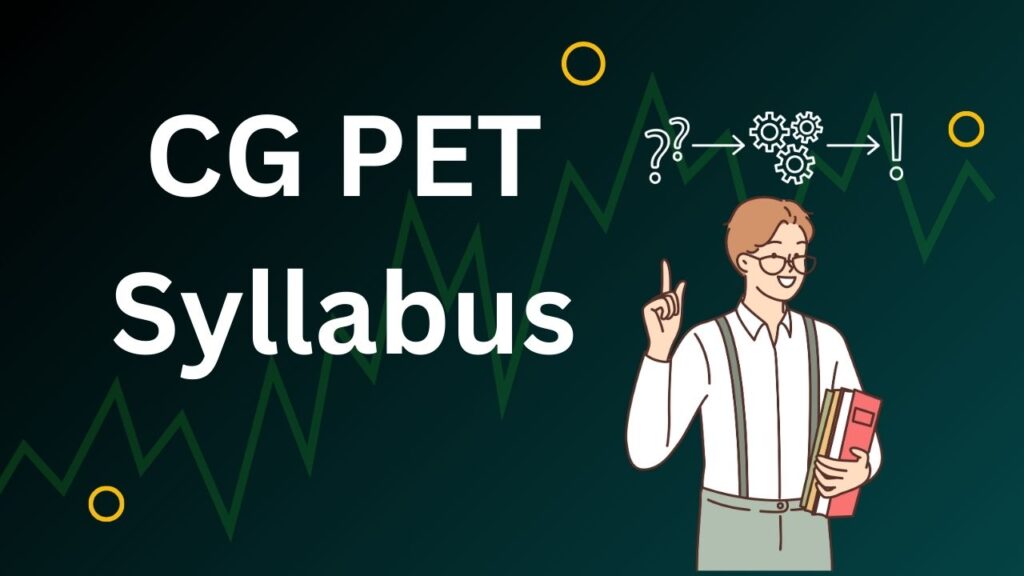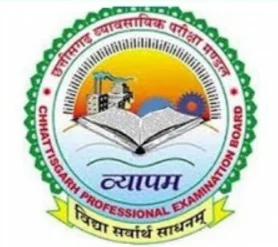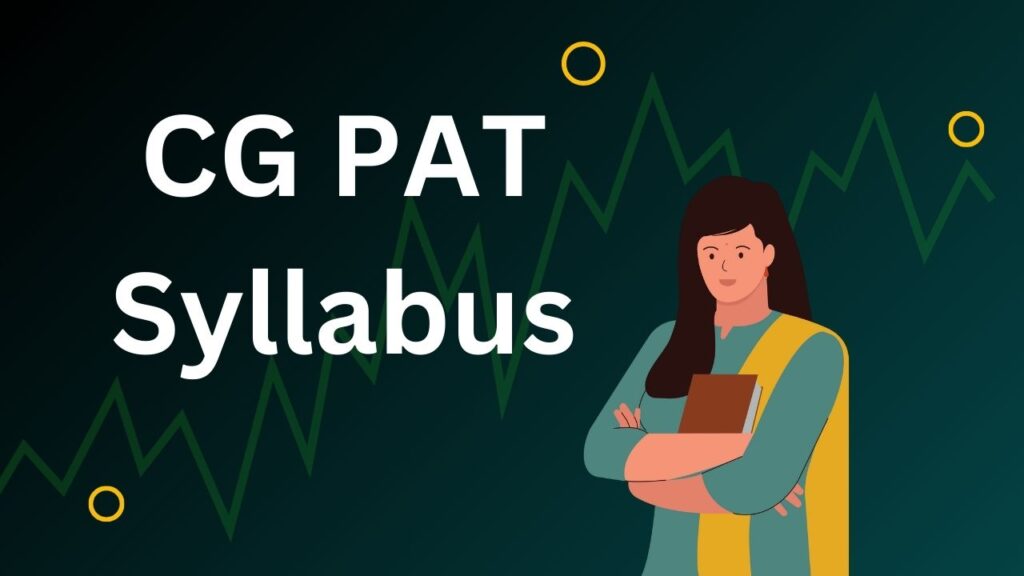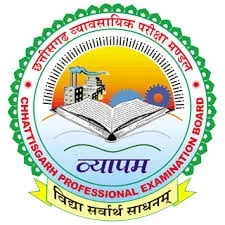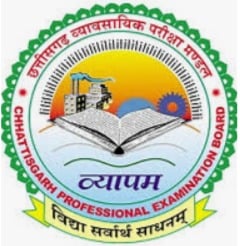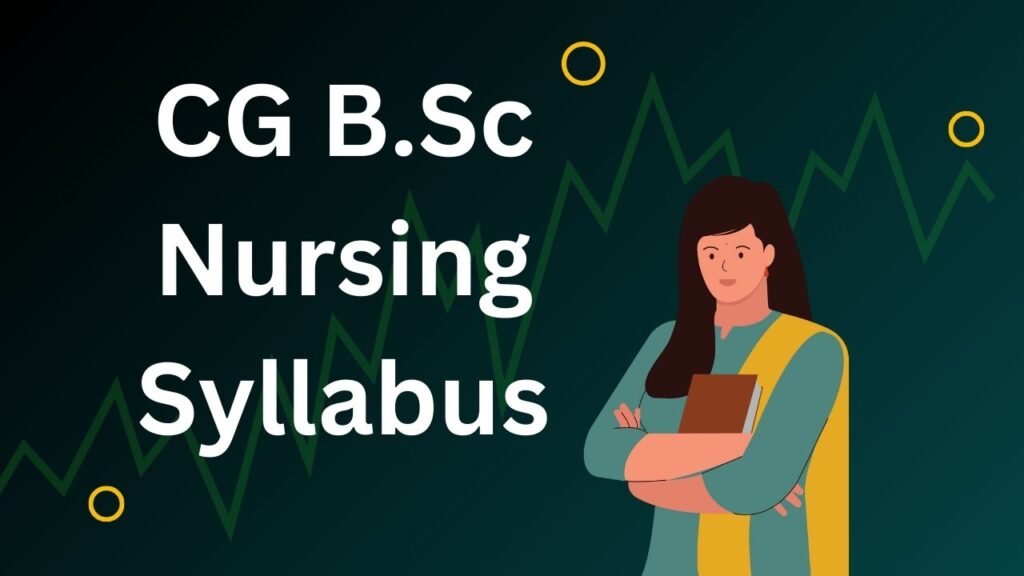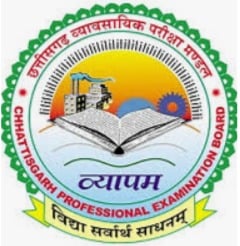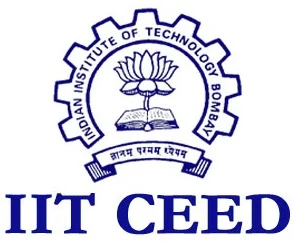CG PPHT Syllabus-CG PPHT Syllabus Download PDF
CG PPHT Syllabus
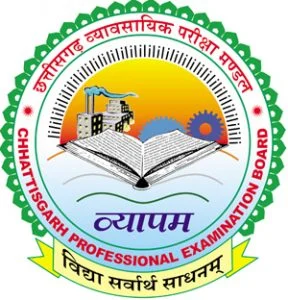
CG PPHT Syllabus: A Deep Dive into the Syllabus and Exam Preparation
Introduction
To make sure you do well on the CG PPHT (Chhattisgarh Pre-Pharmacy Test), you need to plan how you will go through the course. Understanding the full schedule and training methods is very important for people who want to become pharmacists. This post goes over the entire CG PPHT course and breaks down each part in detail so that you can learn everything you need to know to do well.
Understanding the CG PPHT Examination
The Chhattisgarh Professional Examination Board (CGPEB) gives the CG PPHT, a state-level test for people who want to get into pharmacy programs in different Chhattisgarh schools. The test measures how well candidates know topics that are related to the pharmacy sciences.
CG PPHT Syllabus Overview
The carefully planned CG PPHT course covers a wide range of topics that are important in the area of pharmacy. The course is broken up into different parts that cover different academic subjects. Some of the important topics are:
1. Physics
The Physics section of the CG PPHT syllabus covers fundamental concepts and principles that are vital for understanding more advanced topics in pharmacy. Key areas include:
- Mechanics: Laws of motion, work, energy, and power.
- Thermodynamics: Heat, temperature, and thermodynamic processes.
- Electromagnetism: Electric fields, magnetic fields, and electromagnetic induction.
- Optics: Reflection, refraction, and optical instruments.
Study Tip: Focus on understanding core concepts and solving numerical problems to build a strong foundation in Physics.
CG PPHT 2024 Exam Pattern Highlights
| Name of Exam | Chhattisgarh Pre-Pharmacy Test 2024 |
| Popularly known as | CG PPHT 2024 |
| Frequency of Exam | Once a year |
| Mode of Exam | Offline |
| Number of Questions | 150 |
| Type of Questions | MCQ |
| Negative Marking | Yes |
CG PPHT 2024 Exam Pattern Details
As mentioned earlier, CG PPHT 2024 is going to be in offline form. The Exam Pattern for CG PPHT 2024 is to be decided by CPEB and can change from year to year. Candidates are advised to carefully understand the exam pattern of CG PPHT 2024.
Here are some significant details about CG PPHT 2024 Exam Pattern.
- CG PPHT 2024 contains a total of 150 questions.
- All the questions in CG PPHT 2024 are of Multiple Choice Type/Objective type.
- Candidate has given a total time of 180 minutes to complete the test.
- CG PPHT 2024 is divided in 3 sections, that of subjects Physics, Chemistry and Biology/Mathematics.
- For the third section of CG PPHT 2024, candidates can choose either Biology or Mathematics as a subject.
- Each of the section will contain 50 questions from the respective subject.
Following table may give a better view of exam pattern of CG PPHT 2024:
| SECTION | SUBJECT | NUMBER OF QUESTIONS | TIME ALLOTED | MODE |
|---|---|---|---|---|
| A | Physics | 50 | 180 minutes | Offline |
| B | Chemistry | 50 | ||
| C | Biology/Mathematics | 50 |
2. Chemistry
The Chemistry section is crucial as it forms the basis for understanding pharmaceutical compounds and reactions. The syllabus typically includes:
- Physical Chemistry: States of matter, chemical equilibrium, and reaction kinetics.
- Inorganic Chemistry: Periodic table trends, chemical bonding, and coordination compounds.
- Organic Chemistry: Hydrocarbons, functional groups, and mechanisms of organic reactions.
Study Tip: Emphasize learning reaction mechanisms and practicing problems to enhance your comprehension of chemical processes.
3. Biology
The Biology section examines knowledge related to human anatomy, physiology, and cellular biology, which are essential for pharmacy studies. Key topics include:
- Cell Biology: Cell structure, function, and cellular processes.
- Human Anatomy: Organ systems, physiological processes, and human health.
- Botany: Plant biology, plant physiology, and medicinal plants.
Study Tip: Use visual aids such as diagrams and charts to better understand biological structures and processes.
4. General Knowledge and Current Affairs
This section tests candidates on their awareness of current events and general knowledge, which is essential for holistic development. Topics include:
- Current Events: Recent developments in national and international news.
- General Knowledge: History, geography, and basic science.
Study Tip: Regularly read newspapers, magazines, and current affairs websites to stay updated on recent events and general knowledge.
Preparation Strategies for CG PPHT
To excel in the CG PPHT, adopting effective preparation strategies is essential. Here are some tips to help you prepare efficiently:
1. Create a Study Plan
A well-structured study plan is crucial for covering the entire syllabus systematically. Allocate specific time slots for each subject, and ensure to include regular revisions and practice tests.
2. Use Standard Study Material
Utilize recommended textbooks, reference books, and online resources tailored to the CG PPHT syllabus. Reliable study material ensures that you cover all essential topics comprehensively.
3. Practice Previous Years’ Papers
Practicing previous years’ question papers helps familiarize you with the exam pattern and the types of questions asked. It also aids in improving time management skills.
4. Take Mock Tests
Regular mock tests are an excellent way to assess your preparation level. They help identify strengths and weaknesses, allowing you to focus on areas that need improvement.
5. Stay Healthy and Balanced
Maintaining a balanced diet and getting adequate sleep is vital during your preparation period. A healthy body supports a sharp mind, essential for effective study sessions and exam performance.
Conclusion
Mastering the CG PPHT course involves planning ahead and doing a lot of work. You can improve your chances of passing the CG PPHT by focusing on the most important parts of each topic, using good study tools, and using tried-and-true methods of preparation. Stay committed, practice often, and make sure you study in a healthy way.
CG PPHT Syllabus-CG PPHT Syllabus Download PDF Read More »

